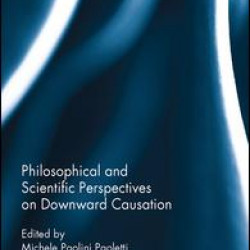Philosophy
Brand: Taylor & Francis
Model: 9781138185692
'Soul', 'self', ‘substance’ and 'person' are just four of the terms often used to refer to the human individual. Cutting across metaphysics, ethics, and religion the nature of personal identity is a fundamental and long-standing puzzle in philosophy.Personal Identity and Applied Ethics introduces ..
₹2,844.88
Brand: Taylor & Francis
Model: 9781317369554
This edited collection focuses on the moral and social dimensions of ignorance—an undertheorized category in analytic philosophy. Contributors address such issues as the relation between ignorance and deception, ignorance as a moral excuse, ignorance as a legal excuse, and the relation between ignor..
₹0.00
Brand: Taylor & Francis
Model: 9781138945661
This edited collection focuses on the moral and social dimensions of ignorance—an undertheorized category in analytic philosophy. Contributors address such issues as the relation between ignorance and deception, ignorance as a moral excuse, ignorance as a legal excuse, and the relation between ignor..
₹11,016.00
Brand: Taylor & Francis
Model: 9781351814898
Following up on his previous book, Violence and Phenomenology, James Dodd presents here an expanded and deepened reflection on the problem of violence. The book’s six essays are guided by a skeptical philosophical attitude about the meaning of violence that refuses to conform to the exigencies of es..
₹0.00
Brand: Taylor & Francis
Model: 9780415791892
Following up on his previous book, Violence and Phenomenology, James Dodd presents here an expanded and deepened reflection on the problem of violence. The book’s six essays are guided by a skeptical philosophical attitude about the meaning of violence that refuses to conform to the exigencies of es..
₹10,557.00
Brand: Taylor & Francis
Model: 9781317271444
Downward causation plays a fundamental role in many theories of metaphysics and philosophy of mind. It is strictly connected with many topics in philosophy, including but not limited to: emergence, mental causation, the nature of causation, the nature of causal powers and dispositions, laws of natur..
₹0.00
Brand: Taylor & Francis
Model: 9781138195059
Downward causation plays a fundamental role in many theories of metaphysics and philosophy of mind. It is strictly connected with many topics in philosophy, including but not limited to: emergence, mental causation, the nature of causation, the nature of causal powers and dispositions, laws of natur..
₹11,934.00
Brand: Taylor & Francis
Model: 9781315449753
Philosophy for Everyone begins by explaining what philosophy is before exploring the questions and issues at the foundation of this important subject.Key topics in this new edition and their areas of focus include:Moral philosophy – the nature of our moral judgments and reactions, whether they..
₹0.00
Brand: Taylor & Francis
Model: 9781138672949
Philosophy for Everyone begins by explaining what philosophy is before exploring the questions and issues at the foundation of this important subject.Key topics in this new edition and their areas of focus include:Moral philosophy – the nature of our moral judgments and reactions, whether they..
₹1,559.68
Brand: Taylor & Francis
Model: 9780415718974
Philosophy of Language provides a comprehensive, meticulous survey of twentieth-century and contemporary philosophical theories of meaning. Interweaving the historical development of the subject with a thematic overview of the different approaches to meaning, the book provides students with the tool..
₹2,844.88
Brand: Taylor & Francis
Model: 9781351265515
Philosophy of Language provides a comprehensive, meticulous survey of twentieth-century and contemporary philosophical theories of meaning. Interweaving the historical development of the subject with a thematic overview of the different approaches to meaning, the book provides students with the tool..
₹0.00
Brand: Taylor & Francis
Model: 9781315281001
Philosophy of Law: An Introduction provides an ideal starting point for students of philosophy and law. Setting it clearly against the historical background, Mark Tebbit quickly leads readers into the heart of the philosophical questions that dominate philosophy of law today. He provides an exceptio..
₹0.00













